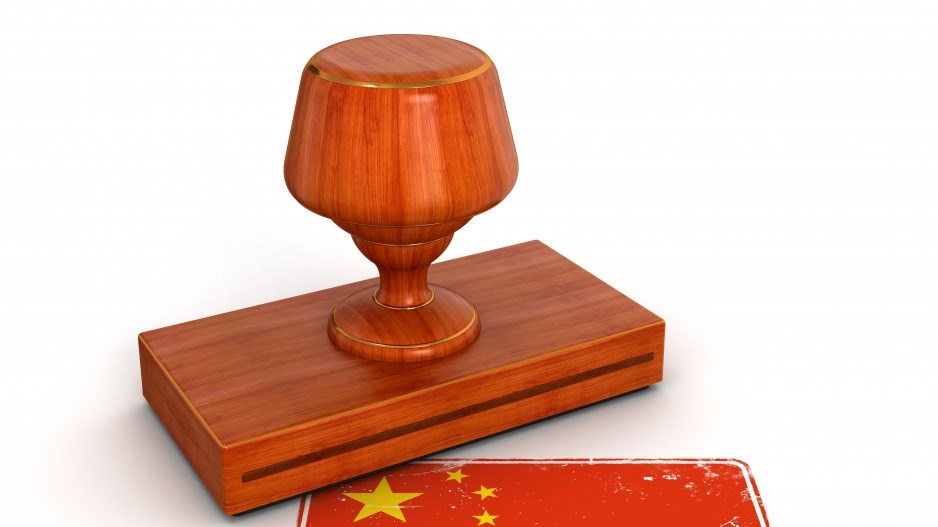The number of Canadian firms filing trademark applications in China has exploded over the last decade, rising 265% between 2008 and 2017 – an increase that observers say highlights both a rising interest in chasing the Chinese consumer market and an awareness that companies have to protect themselves from third-party “trademark squatters.”
The data comes from the IP Canada Report 2019, released by the Canadian Intellectual Property Office, which shows Canadian companies in 2017 saw a 17% increase in filing trademark applications abroad. The top market where trademark protection was sought is the United States (9,013, or 46% of total foreign applications by Canadian firms), but China is now second in the rankings with 3,401 applications – 17% of the total application share.
Lawyers from intellectual property (IP) law firms in both Vancouver and elsewhere in Canada confirm anecdotally that there has been a spike in interest from Canadian companies looking to file for trademark protection in China, a market that has been much maligned historically for not doing enough to protect IP rights of companies both domestic and foreign.
But recent developments in Beijing have indicated a “seismic shift” in China’s dealings with intellectual property rights, said Clinton Lee, partner and lawyer at Vancouver-based Nexus Law Group LLP, who said the increase in regulation and enforcement is partially responsible for Canadian companies now filing trademarks in the country.
“I would say that the traditional thought that China really doesn’t have intellectual property protection has largely shifted,” said Lee, whose firm is dedicated to intellectual property law and offers Chinese-language services to Canadian clients. “The reason is that the Chinese government recognized that their own nationals require IP protection. Their companies are growing, and they need to protect their homegrown technology.
Consequently, those laws apply equally to international companies, so protection has increased for everyone in China.”
David Ng, partner and IP lawyer at Norton Rose Fulbright in Toronto, said another reason for the jump in Canadian firms applying for trademarks in China could be the increased cross-pollination of Canadian and Chinese companies – with greater Chinese investment in Canadian firms and more Chinese firms starting subsidiaries in Canada. In both of those cases, if there are patent or trademark applications in Canada, an application would be launched simultaneously in China.
Ng added, however, that China’s improving intellectual property protection still has not caught up to the West’s, so companies that identify China as a place they want to file a patent or trademark application would need to keep expectations in check.
“It’s better,” Ng said, describing the current IP situation in China. “It’s not by any stretch as good as it is in North America, Europe or elsewhere, but it has improvements that have happened in the last five to 10 years. There is enforcement now, and patent holders have been successful in the courts there. So there’s a slow change for a country that has a growing middle class and a recognition that there needs to be stronger IP rights and the importance of it.”
Another driver for increasing Canadian applications for trademarks in China could be the increased awareness that companies need to protect their IP, even in cases where a company does not sell the products in the Chinese market. Nathan Haldane, a Toronto-based IP lawyer with Fasken, said in a note that China employs a “first-to-file” trademark system that allows valuable brands to be registered by “third parties looking to take advantage of business owners who fail to protect their IP in China.”
When combined with China’s increased enforcement of trademark laws, especially during the import and export process, failing to protect an IP and losing it to a third-party “squatter” could prove problematic for a company’s supply chain.
“Chinese border services may detain goods due for export ... on the basis that they infringe the registered Chinese trademark rights in an effort to crack down on counterfeits,” Haldane said, adding the goods in question may end up being held in detention while the case is resolved legally. “In order to avoid these types of disputes … we recommend that all companies manufacturing goods in China register their trademark with the Chinese National Intellectual Property Administration to allow for the easy export of their goods from China.”




